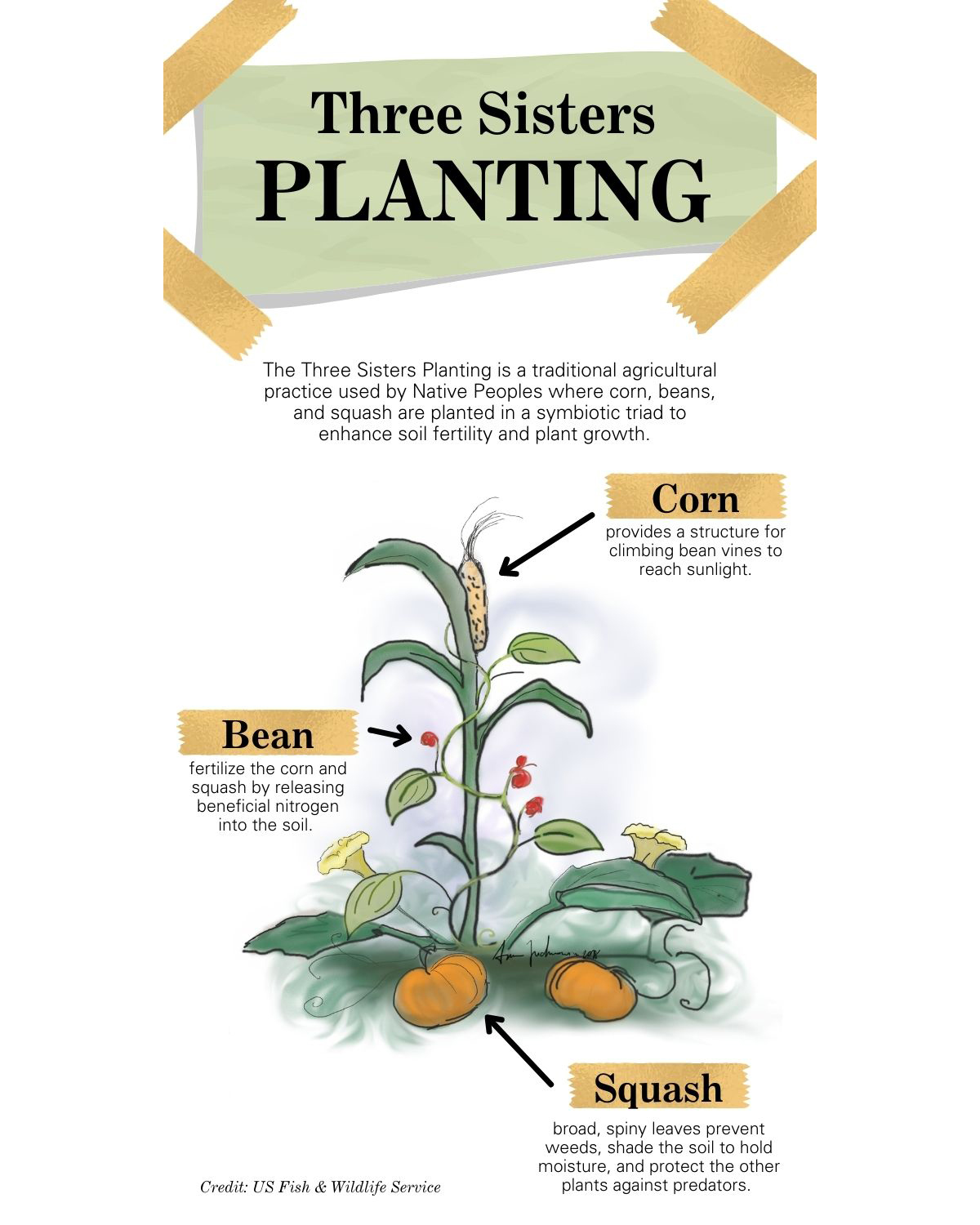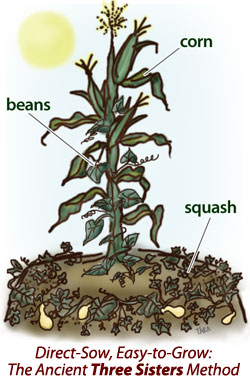
Cultivating Resilience: How the Oneida Nation’s Three Sisters Method is Replanting the Future of Modern Agriculture
In an era increasingly defined by climate volatility, soil degradation, and a global quest for sustainable food systems, a quiet revolution is taking root in the heart of North America. It’s a revolution not born of cutting-edge biotechnology or industrial scale, but rather a profound re-engagement with ancestral wisdom. The Oneida Nation, one of the original five nations of the Haudenosaunee Confederacy, is demonstrating how their traditional Three Sisters farming method—a sophisticated polyculture system involving corn, beans, and squash—is not merely a historical curiosity but a powerful blueprint for modern sustainable agriculture, capable of feeding communities, enriching ecosystems, and fortifying cultural identity.
For millennia, the Three Sisters have been the cornerstone of Haudenosaunee civilization, nourishing its people both physically and spiritually. This ingenious intercropping system is a testament to Indigenous ecological knowledge, predating contemporary permaculture principles by thousands of years. The corn provides a stalk for the beans to climb, eliminating the need for artificial trellises. The beans, in turn, fix nitrogen in the soil, enriching it for the hungry corn and squash. The broad leaves of the squash plant spread across the ground, shading the soil to suppress weeds, retain moisture, and deter pests with their prickly stems. Together, they form a symbiotic triad, creating a miniature ecosystem that is more productive and resilient than any monoculture.
"Our ancestors understood the land not as something to be conquered, but as a living relative to be cared for," explains Loretta Metoxen, an Oneida elder and advocate for traditional foodways. "The Three Sisters are more than just food; they are a teaching, a relationship. They show us how different beings can support each other to thrive, just as we must support one another in our community." This philosophy underscores the Oneida Nation’s current initiatives, which are not simply about growing food, but about rebuilding a holistic relationship with the earth and fostering community well-being.
The modern agricultural landscape, dominated by vast monocultures, heavy reliance on synthetic fertilizers and pesticides, and genetically modified crops, stands in stark contrast to the Three Sisters approach. While industrial farming has achieved impressive yields, it comes at a steep environmental cost: soil depletion, water pollution, loss of biodiversity, and a significant carbon footprint. The Oneida Nation’s embrace of the Three Sisters method offers a compelling alternative, demonstrating that high productivity can coexist with ecological health and cultural integrity.
At the Oneida Community Integrated Food Systems (OCIFS) farm in Oneida, Wisconsin, the Three Sisters are central to a broader vision of food sovereignty. Here, traditional knowledge is fused with modern agricultural science. Soil samples are taken to understand nutrient profiles, but the solution to deficiencies often lies not in chemical inputs, but in cover cropping, composting, and the inherent nitrogen-fixing power of the beans. Drip irrigation systems might be employed for water efficiency, but the fundamental layout and companion planting principles remain rooted in tradition.

"We’re not rejecting modern tools outright," says Tony Brown, OCIFS Farm Manager. "We’re using them intelligently to enhance what our ancestors already perfected. The goal is to maximize yield sustainably, reduce our environmental impact, and provide healthy, culturally appropriate food for our people. For instance, we might use modern genetic analysis to identify heirloom corn varieties that are particularly resilient to local pests or diseases, ensuring the integrity of our traditional strains."
The benefits extend far beyond the ecological. Nutritionally, the Three Sisters offer a complete and balanced diet. Corn provides carbohydrates, beans are rich in protein and fiber, and squash supplies vitamins and minerals. This naturally occurring nutritional synergy was vital for the health and sustenance of Indigenous communities for millennia, and it remains highly relevant in addressing contemporary dietary challenges. For the Oneida Nation, growing their own food means greater control over the quality and availability of healthy options, combating diet-related illnesses prevalent in many Indigenous communities.
Economically, the Oneida Nation’s sustainable farming initiatives are creating jobs and fostering local economic development. The produce from OCIFS and other community gardens is distributed through farmers’ markets, a community-supported agriculture (CSA) program, and directly to tribal schools and elder care facilities. This not only strengthens the local food economy but also reduces reliance on external, often distant, food supply chains, bolstering food security. The Oneida Nation is investing significantly in agricultural infrastructure, from processing facilities to educational programs for aspiring Indigenous farmers, ensuring that this knowledge and practice can be passed down to future generations.
Furthermore, the Three Sisters method serves as a powerful vehicle for cultural revitalization. The act of planting, tending, and harvesting these sacred crops reconnects community members, particularly youth, with their heritage, language, and ceremonies. Workshops on traditional planting techniques, seed saving, and cooking with the Three Sisters are integral to the Nation’s educational outreach. "When our young people are out in the field, touching the soil, seeing the beans climb the corn, they’re not just learning about farming; they’re learning who they are, where they come from," Metoxen emphasizes. "They’re learning our language through the names of the plants, our stories through the teachings embedded in the cycle of life."
The Oneida Nation’s work with the Three Sisters also offers a compelling model for broader agricultural reform. As global food systems grapple with the impacts of climate change—from unpredictable weather patterns to new pest outbreaks—the inherent resilience of polyculture systems becomes increasingly attractive. The biodiversity within a Three Sisters plot makes it less susceptible to widespread crop failure than a single-crop field. If one component struggles, the others can still thrive, providing a natural buffer against environmental shocks. This robustness is a lesson modern agriculture desperately needs to heed.
Challenges, of course, persist. Scaling up traditional methods to meet the needs of a growing community requires careful planning and investment. Land availability, access to appropriate traditional seed varieties, and competition with established industrial food markets are all factors that the Oneida Nation navigates. Educating consumers and markets about the value and benefits of traditionally grown, heirloom produce is also an ongoing effort. Yet, the commitment to these practices remains unwavering, driven by a vision that extends far beyond immediate yields.
The Oneida Nation’s journey with the Three Sisters method is more than a farming project; it is a profound act of sovereignty, resilience, and hope. It demonstrates that the path to a sustainable future is not always found in the newest technology, but often in the deepest roots of tradition. By cultivating their ancestral wisdom, the Oneida Nation is not just growing food; they are growing a sustainable future, nurturing their community, and offering a vital lesson to the world on how to live in harmony with the land, one sacred harvest at a time. In the interconnected embrace of corn, beans, and squash, they are replanting not just seeds, but the very principles of ecological balance and enduring human wisdom into the soil of modern agriculture.


